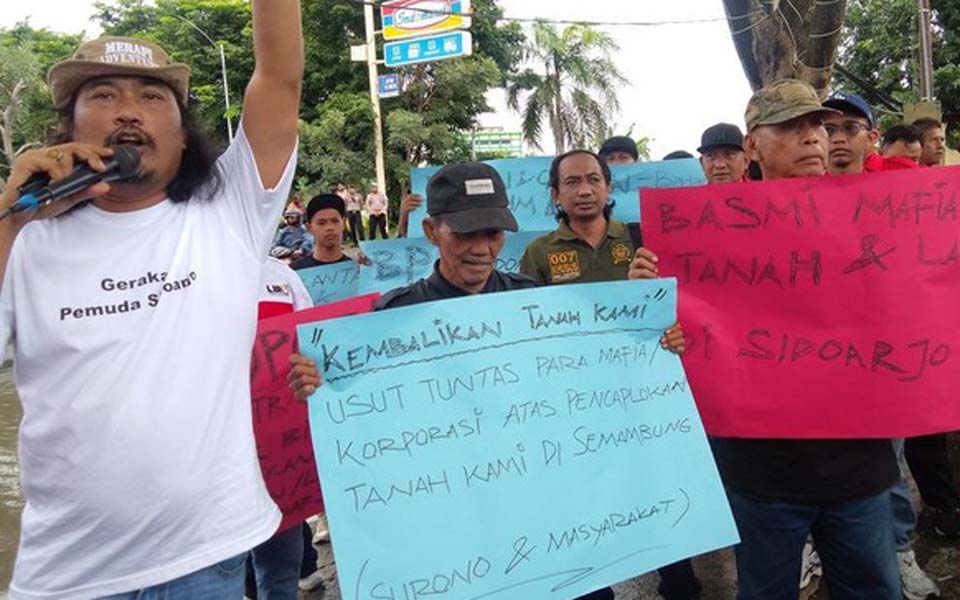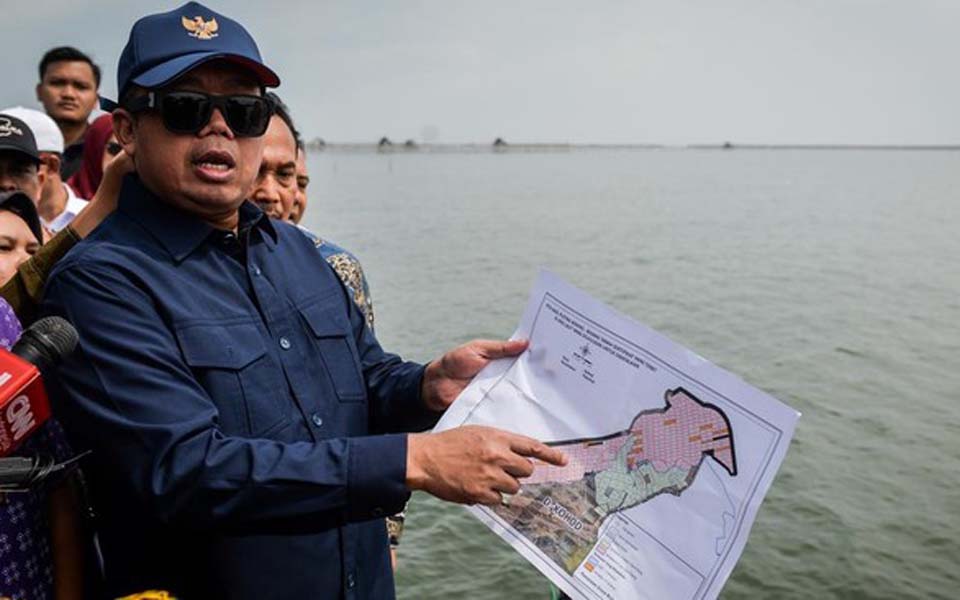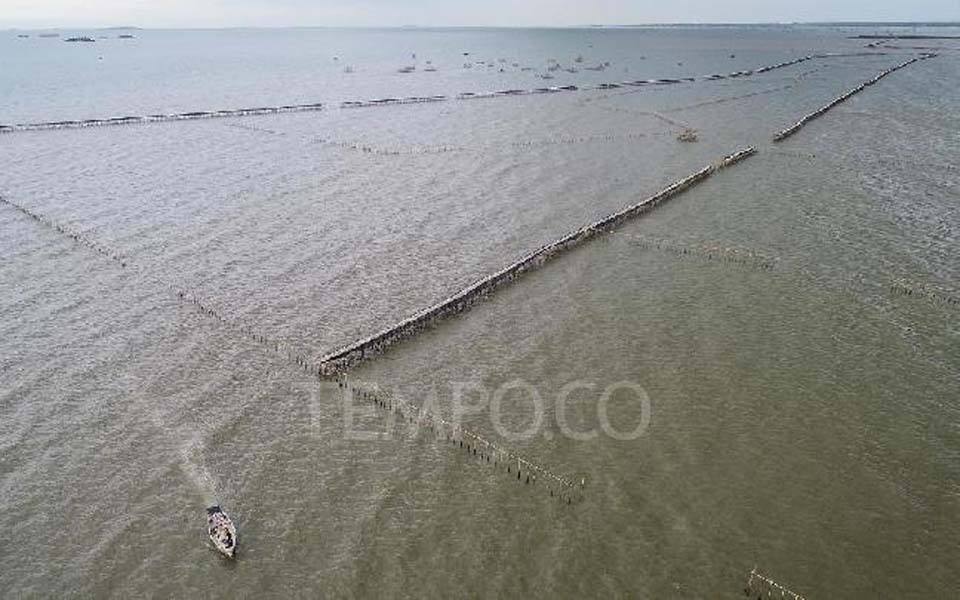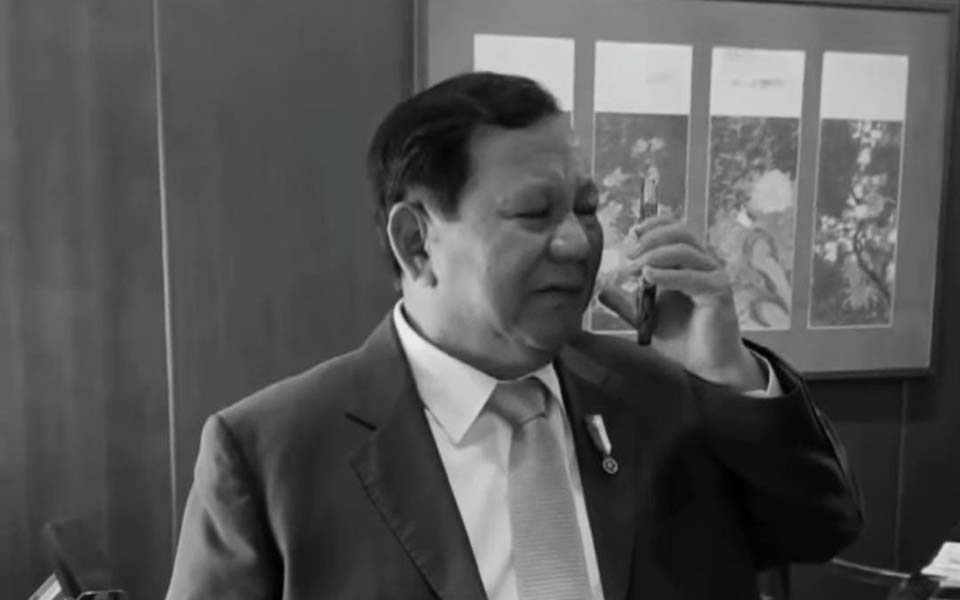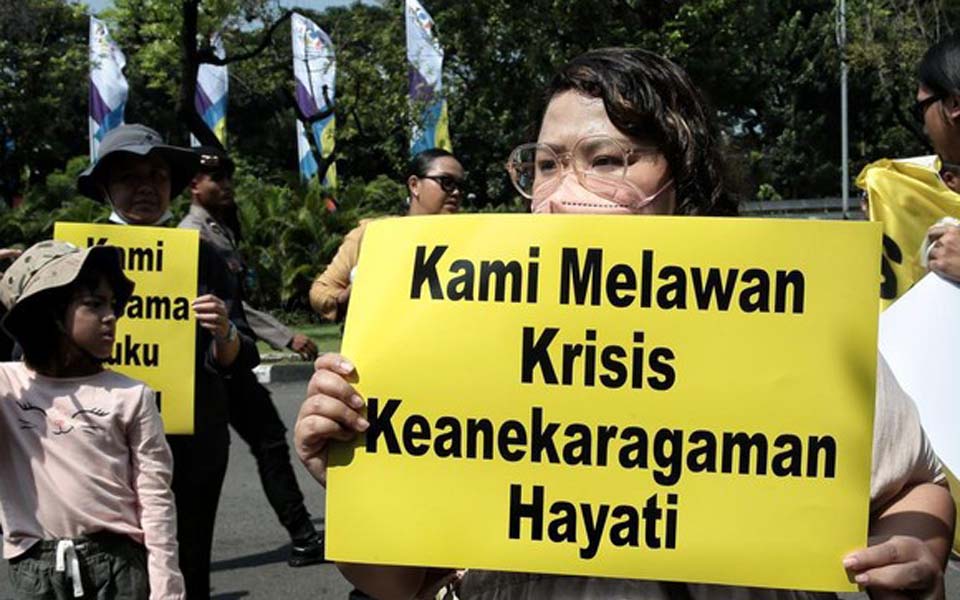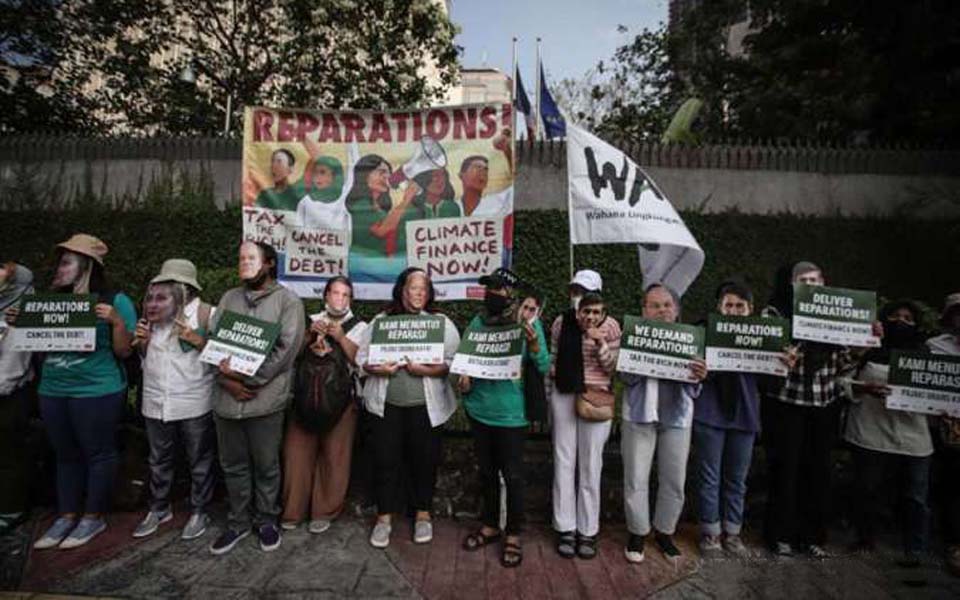Surabaya – A group of people from the Brantas River Coalition to Stop Imported Plastic Trash (Bracsip) held a protest action not far from the US Consulate General in Citra Raya Niaga, Surabaya, on Friday July 12.
They were protesting imported plastic waste which is alleged to have been illegally smuggled into Indonesia from the US.
During the action, which was held around 200 metres from the US Consulate, they brought a pile of imported plastic waste. As well as giving speeches they also brought a giant replica fish with scales made out of waste packaging imported from the US.
Bracsip coordinator Prigi Arisandi said that the US is the largest exporter of waste into Indonesia. According to National Statistics Agency (BPS) data, said Arisandi, East Java has accepted at least 738,685 tons of waste paper from the US.
In July, the Tanjung Perak port customs and excise office in Surabaya detained at least 38 containers of paper waste from the US. Earlier in June, as many as five containers of waste were sent back to Seattle.
Arisandi said that the waste included plastic bottles, food packaging, second hand clothing, baby’s diapers, electronic waste and cans which are categorised as toxic and hazardous materials (B3) and were smuggled in as waste paper.
“The findings of a Bracsip investigation showed that paper waste imports categorised as green line (permitted) turned out to be contaminated with household waste, particularly plastic waste, with a percentage of as much as 30 percent”, said Arisandi in Surabaya.
The high level of plastic waste contamination in the imported paper waste has a terrible impact on the environment, one of which is micro-plastic pollution of the Brantas River.
The Wetlands Conservation and Ecological Study Foundation (Ecoton) found that there are 12 paper factories that make use of imported waste materials.
The factories, which are located in the East Java cities of Surabaya, Gresik, Sidoarjo, Mojokerto, Malang, Kediri and Nganjuk, dispose of their liquid waste mixed with micro-plastics into the Surabaya River. Yet, said Arisandi, the water from this river is used by the state-own water company PDAM to supply water to 5 million East Java residents.
“Micro-plastic is very dangerous because when in water it absorbs detergents, pesticides, heavy metals and compound chemicals which then enter the body through water and food which are contaminated by micro-plastic. The fact is that 80 percent of the fish in the Brantas [River] contain micro-plastics”, he said.
This is not to mention the health risks for those collecting and distributing plastic waste. Waste imports, said Arisandi, promote the development of plastic waste distribution businesses in the vicinity of paper factories, where people can buy plastic waste from companies for sorting and resale.
Physical contact with this waste creates the potential for contamination with dangerous materials and increases the risk of health problems. Imported waste also has the potential to contain B3 waste.
Arisandi, who is also the director of Ecoton, says that their research shows that only 60 percent of this imported waste can be processed for recycling. The remaining 40 percent meanwhile is burnt or used as a fuel for small-scale industries.
If the waste is burnt, the plastic triggers the release of dioxin and furan, both of which are carcinogenic and cause lung cancer. This is of course bad for the air in East Java.
Looking at the many bad impacts on the environment due to this waste, Bracsip is urging the US government to stop the smuggling of household rubbish in paper waste exported into Indonesia, particularly East Java.
“We urge America to take responsibility for the environmental damage cause by plastic waste, domestic rubbish and filth which pollutes the earth, air and water in East Java”, said Arisandi.
“As well as apologising to the people of East Java for acting unethically by disposing of plastic waste in East Java’s environment”, he added. (frd/wis)
[Translated by James Balowski. The original title of the article was “Protes Sampah Impor, Massa di Jatim Geruduk Konjen Amerika”.]







